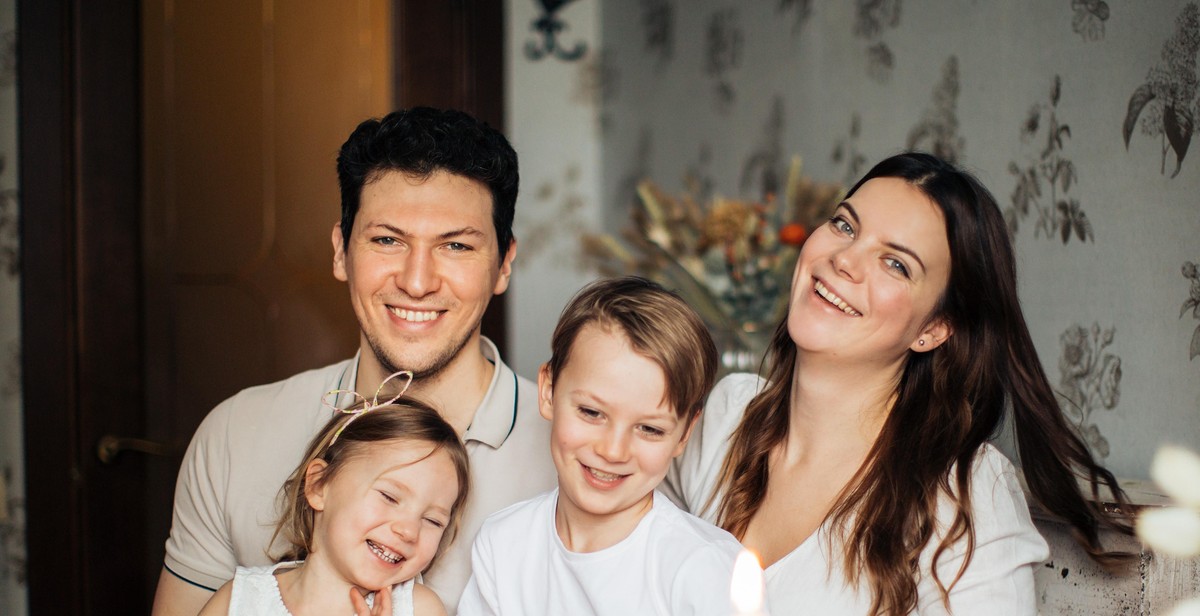Creating Healthy Boundaries: A Love Guru’s Guide
As a love and relationships psychology guru, I have worked with countless individuals and couples who have struggled with setting and maintaining healthy boundaries in their relationships. However, I didn’t always have a clear understanding of the importance of boundaries myself.
My Personal Experience with Boundaries
Years ago, I found myself in a toxic relationship where I constantly felt drained and emotionally exhausted. I was constantly giving and sacrificing my own needs for the sake of the relationship, but I never felt like it was reciprocated. I didn’t realize it at the time, but I was lacking healthy boundaries.
It wasn’t until I took a step back and evaluated the situation that I realized the importance of setting boundaries in all aspects of my life, especially in my relationships. Through my own personal growth and education, I have learned how to establish and maintain healthy boundaries in my relationships, and I now teach others how to do the same.
In this guide, I will share with you the importance of boundaries in relationships and provide practical tips for creating healthy boundaries that will strengthen your relationships and improve your overall well-being.

Defining Boundaries in Relationships
Boundaries are essential in any relationship, whether it’s romantic, familial, or platonic. They are the guidelines that define the limits of what is acceptable and unacceptable behavior, both for yourself and for others. Boundaries help to create a safe and healthy environment, where both parties can feel respected and valued.
Types of Boundaries
There are several types of boundaries that one can establish in a relationship. Some of them include:
- Physical boundaries: These refer to the physical space around you, and how much of it you are comfortable sharing with others.
- Emotional boundaries: These refer to your emotional well-being, and how much you are willing to share with others.
- Intellectual boundaries: These refer to your thoughts, ideas, and opinions, and how much you are willing to share with others.
- Social boundaries: These refer to your social life, and how much time and energy you are willing to dedicate to others.
The Importance of Boundaries
Establishing healthy boundaries is crucial for maintaining a healthy relationship. It helps to prevent misunderstandings, conflict, and resentment. When both parties understand and respect each other’s boundaries, it creates a sense of trust and security.
Boundaries also help to promote self-care and self-respect. When you establish clear boundaries, you are sending a message to yourself and others that your needs and well-being are important.
| Benefits of Boundaries |
|---|
| Clear communication |
| Reduced stress and anxiety |
| Increased self-esteem |
| Better understanding of expectations |

Why are Boundaries Important?
As a love and relationships psychology guru, I can attest to the importance of healthy boundaries in any relationship. Boundaries are the physical, emotional, and mental limits we set to protect ourselves and our relationships from harm.
Benefits of Healthy Boundaries in Relationships
Creating healthy boundaries in a relationship can have numerous benefits, including:
- Improved Communication: When boundaries are clearly defined, it becomes easier to communicate our needs, wants, and expectations to our partners. This can lead to better communication and understanding in the relationship.
- Increased Self-Esteem: Setting and enforcing boundaries can help us feel more confident and in control of our lives. This can lead to increased self-esteem and a greater sense of self-worth.
- Better Emotional Health: Boundaries can protect us from emotional harm, such as manipulation, guilt-tripping, or gaslighting. When we have healthy boundaries, we are better equipped to recognize and address unhealthy behaviors in our relationships.
- Improved Intimacy: When both partners respect each other’s boundaries, it can lead to a deeper sense of intimacy and trust in the relationship.
Overall, creating healthy boundaries is essential for any healthy relationship. It allows us to protect ourselves and our relationships from harm, while also fostering open communication, trust, and intimacy.

Types of Boundaries
As a love guru, I have seen time and time again how important it is to have healthy boundaries in relationships. Boundaries are limits that we set for ourselves and others, and they are essential for maintaining healthy and respectful relationships. Here are the four main types of boundaries:
Physical Boundaries
Physical boundaries refer to the physical space we need to feel safe and comfortable. This can include personal space, boundaries around our bodies, and boundaries around our possessions. It is essential to communicate our physical boundaries clearly and respectfully to our partners.
Emotional Boundaries
Emotional boundaries refer to our emotional needs and the boundaries we set around them. This can include boundaries around our feelings, thoughts, and beliefs. It is important to communicate our emotional boundaries honestly and openly to our partners.
Intellectual Boundaries
Intellectual boundaries refer to the boundaries we set around our thoughts and ideas. This can include boundaries around our beliefs, values, and opinions. It is important to respect our partner’s intellectual boundaries and to communicate our own boundaries clearly.
Material Boundaries
Material boundaries refer to the boundaries we set around our possessions and finances. This can include boundaries around sharing money, property, and other material possessions. It is important to communicate our material boundaries clearly and to respect our partner’s boundaries as well.
By understanding and respecting these types of boundaries, we can create healthy and fulfilling relationships built on mutual respect and understanding.

Setting Boundaries
One of the most important aspects of creating healthy relationships is setting boundaries. As a love and relationships psychology guru, I have seen time and time again the negative consequences that can come from not having clear and enforced boundaries.
Identifying Your Personal Boundaries
The first step in setting boundaries is identifying what your personal boundaries are. This can be a difficult process, as many of us have never really taken the time to think about it. Start by reflecting on your values and what you are and are not comfortable with in a relationship. Some common personal boundaries include:
- Physical boundaries (e.g. not wanting to be touched in a certain way)
- Emotional boundaries (e.g. not wanting to be criticized or belittled)
- Time boundaries (e.g. needing alone time or time for personal hobbies)
Communicating Your Boundaries
Once you have identified your personal boundaries, it is important to communicate them clearly to your partner. This can be done in a non-confrontational way by using “I” statements and expressing your needs and feelings. For example, “I feel uncomfortable when you speak to me in a certain tone” or “I need some alone time to recharge my batteries.”
Enforcing Boundaries
Finally, it is crucial to enforce your boundaries once they have been communicated. This means standing firm and not allowing your partner to cross those boundaries. It can be difficult to do this at first, but it is important for the health of the relationship. If your partner continues to violate your boundaries, it may be a sign that the relationship is not a healthy one and it may be time to reevaluate.
| Key Takeaways: |
|---|
| – Identify your personal boundaries |
| – Communicate your boundaries clearly using “I” statements |
| – Enforce your boundaries and stand firm |

Maintaining Healthy Boundaries
Creating healthy boundaries is just the first step towards a fulfilling and happy relationship. Maintaining them is equally important. Here are some tips on how to maintain healthy boundaries:
Self-Care and Boundaries
Self-care is an essential part of maintaining healthy boundaries. It involves taking care of your physical, emotional, and mental well-being. When you take care of yourself, you are better equipped to set and maintain healthy boundaries in your relationships.
One way to practice self-care is to set aside time for yourself every day. This could be anything from taking a relaxing bath to going for a walk in nature. Whatever it is, make sure it’s something that makes you feel good and helps you recharge.
Re-evaluating Boundaries
As we grow and change, our boundaries may need to be re-evaluated. It’s important to regularly check in with yourself and see if your boundaries still align with your needs and values.
One way to do this is to ask yourself if you feel comfortable and respected in your relationships. If not, it may be time to re-evaluate your boundaries and communicate them to your partner.
Remember, boundaries are not set in stone. They can change and evolve over time. The most important thing is to always prioritize your own well-being and communicate your needs to your partner.

Conclusion
Creating healthy boundaries in relationships is essential for maintaining a happy and fulfilling partnership. As a love guru and psychology expert, I have seen firsthand how crucial it is to establish clear and respectful boundaries with your partner.
Final Thoughts
- Remember that boundaries are not meant to be punitive or controlling, but rather a way to protect your emotional and physical well-being.
- Communicate your boundaries clearly and calmly, and be willing to listen to your partner’s boundaries as well.
- Don’t be afraid to reassess and adjust your boundaries as needed. Relationships are dynamic, and what worked for you in the past might not work for you now.
By creating healthy boundaries, you and your partner can enjoy a relationship built on mutual respect, trust, and love. Remember to prioritize your own needs and feelings, and trust that your partner will do the same.
| Remember: | Healthy boundaries lead to healthy relationships. |
Thank you for reading my guide on creating healthy boundaries in relationships. I hope that my insights and personal experiences have been helpful to you in your own love life. Remember to prioritize your own well-being, and don’t be afraid to advocate for yourself in your relationships.
